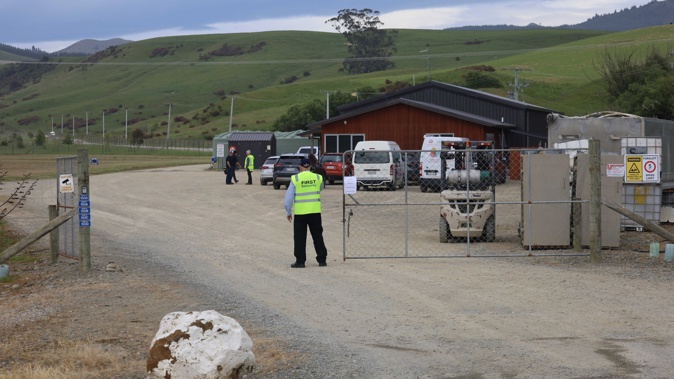
- The number of chickens needing to be culled on an Otago farm has doubled to 80,000.
- It is New Zealand’s first confirmed case of high pathogenic avian influenza H7N6, or bird flu.
- All poultry exports are on hold, and a 10km buffer zone has been established around the farm.
A family member of two workers at an Otago chicken farm which is at the centre of New Zealand’s first confirmed case of bird flu has today spoken of their shock and fear over the outbreak.
One neighbour to the farm, who spoke to the Herald on the condition of anonymity, said they had two family members who worked at the Mainland Poultry free-range farm about an hour north of Dunedin.
They said their partner had been off work since last week due to the confirmed case of high pathogenic avian influenza H7N6, otherwise known as bird flu.
They said they had “no clue” when their partner would be able to return to work, and were waiting to hear from their boss.
“It’s really quite scary, for sure.”
They said the area was quite a small community and a lot of locals worked on the poultry farms.
“Everyone knows each other well, so that’s been hard on them. I think some of them have a lot of off-time too.“
They said they were shocked when they read that 80,000 chickens would be destroyed.
“I drop my kids off to school just down the road, and I have wondered if it’s catchable for humans ... it’s pretty freaky.“
They said there were several poultry farms in the area and they were surprised it was only the farm over the road that had been infected.
- 80,000 chickens to be culled as bird flu spreads to second shed
- First case of high pathogenic strain of bird flu found on Otago egg farm
- Thousands of chickens slaughtered as Ministry aims to eradicate bird flu strain
“Hopefully they can get rid of it and we can go back to normal quickly.”
The affected farm in Otago about an hour north of Dunedin. Photo / Ben Tomsett
All poultry exports have been put on hold as Mainland Poultry tries to rid the farm of the virus before it spreads.
Security staff are placed at the farm gates today.
Some vehicles have been let onto the property and employees can be seen around the main office building.
Another neighbour, Vivian Nimmo, said she was very concerned about the employees, and hoped the farm would qualify for compensation.
Director general of the Ministry for Primary Industries (MPI) Ray Smith said earlier today that the flu is still contained to one farm, but it has spread to a second barn.
This has doubled the number of chickens needing to be culled, going from 40,000 to 80,000, half the total number of chickens on the farm.
Smith said although it might seem like it, this is not yet the worst-case scenario for them.
“Even though we’ve been promoting this quite heavily, this is not the one [virus] that’s spread by migratory birds around the world, which hasn’t arrived in New Zealand yet.
“It’s a serious strain and it’s largely confined to the poultry industry.”
He said there is no indication the H7N6 virus has spread beyond the farm.
MPI said earlier that the laying hens foraging outside were thought to have been infected by wild waterfowl.
A 10km buffer zone had been placed around the farm, along with restrictions to prevent the movement of animals, equipment and feed.
Prime Minister Christopher Luxon said he was informed on Sunday about the case. The farmer understood the risk and had worked closely with MPI to control its spread.
Biosecurity Minister Andrew Hoggard said the farmer had noticed the birds falling ill last Monday on his farm near Moeraki, halfway between Dunedin and Oamaru.
A local vet treated the birds with antibiotics but, as more began to die, he notified MPI on Friday.
Testing teams that arrived on Saturday confirmed the positive result for the H7N6 strain. The farm was locked down on Sunday, and testing and tracing of movement continues.
Hoggard said the farm was at the centre of an outbreak of Infectious Bursal Disease Virus Type 1 in 2019.
The virus was discovered in layer hens at the egg farm.
Take your Radio, Podcasts and Music with you








